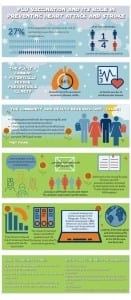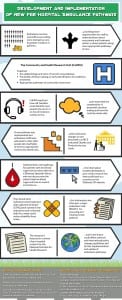Here is a summary of how our research makes a difference presented as a series of visual stories (infographics) created by University of Lincoln student Beth Warman. Just click on each title to see more:
Insomnia is common but poorly managed in primary care, often leading to inappropriate long term prescribing of potentially harmful hypnotic drugs. Research conducted by members of CaHRU, with funding of over £3M from the National Institute for Health Research NIHR), Enginering and Physical Sciences Research Council (EPSRC) and Health Foundation, has informed local and national policy information, educational resources and guidance to primary care clinicians on hypnotic prescribing, and been included in national UK (National Institute for Health and Clinical Excellence: [NICE]), United States (American Association of Sleep Medicine) and international (European) guidance.
The research has led to changes in clinical care for people with insomnia with behaviour change among GPs and other primary care practitioners though educational workshops, seminars and e-learning (www.restproject.org.uk), which has been accessed by over 16,000 users in over 160 countries.
 Ambulance services are providing more care for greater numbers of people with emergency conditions, which has led to a research priority to identify measures of high quality care which will enable improvements in care and outcomes.
Ambulance services are providing more care for greater numbers of people with emergency conditions, which has led to a research priority to identify measures of high quality care which will enable improvements in care and outcomes.
Research by members of the Community and Health Research Unit (CaHRU), funded with over £3.5 million from the NIHR (Programme Grants, Policy Research and Health Services and Delivery Research programmes), CLAHRC, Health Foundation and Falck Foundation, which aimed to improve quality of ambulance care, has led to the development and implementation of new measures for ambulance services in the UK and internationally in the US, Canada and the Middle East. The research has directly informed national UK policy and has been a key factor in improving ambulance care for emergency and other conditions by directly influencing care systems, regulatory indicators, ambulance services, paramedics, and service users, initially in the East Midlands and subsequently throughout England and internationally.
The research has informed the development of new clinical quality indicators for ambulance services in England, led to benchmarking of service quality, supported initiatives to address gaps in care, and contributed to the first UK registry for out-of-hospital cardiac arrest. This has resulted directly and indirectly in measurable improvements in managing pain, heart attack, stroke, asthma and diabetes across all English ambulance services. The UK regulator, the Care Quality Commission, have used these quality indicators to assess and benchmark UK ambulance trusts worldwide.
 Flu vaccination uptake and its role in preventing heart attack and stroke
Flu vaccination uptake and its role in preventing heart attack and stroke
Influenza (‘flu’) causes many deaths and hospitalisations each winter, including from heart attack and stroke. Influenza vaccination although a highly cost-effective preventive measure is poorly taken up by at-risk individuals.
Research conducted by members of the Community and Health Research Unit (CaHRU) and funded by the NIHR Research for Patient Benefit and Policy Research programmes, has increased patient, public and professional awareness of risks of flu, and its link with heart attack and stroke, leading to promotion and uptake of vaccination globally.
This has been supported by our work informing national (UK) and international (US, European and Australian) policy and guidance for organisations and healthcare professionals and directly educating practitioners on risk groups to vaccinate and how to improve processes for increasing vaccine uptake.
 Large-scale health care quality improvement programmes
Large-scale health care quality improvement programmes
Quality and quality improvement are central to health policy worldwide. Research conducted by members of the Community and Health Research Unit, with £2 million funding from the Health Foundation and East Midlands Academic Health Science Network, designed to improve health care at scale by developing new models of care to implement evidence, have brought about changes regionally and nationally in the UK with learning being translated internationally.
We have led national and regional translational research studies involving the design, implementation and evaluation of large scale national, regional and local quality improvement (QI) programmes to improve health care.
This has resulted in improvements to primary care delivery (better care for people with insomnia internationally), prescribing safety (reductions in potential prescribing errors in the East Midlands and UK), improved prehospital ambulance care processes (for heart attack and stroke in England) and new educational programmes for patient centred quality
improvement in the East Midlands and surrounding regions.
 New prehospital ambulance pathways
New prehospital ambulance pathways
Ambulance services and staff are providing more emergency care to greater numbers of patients which gives opportunities for staff to make decisions about assessment and treatment earlier during the course of an illness or to direct patients along more appropriate pathways of care instead of transporting them directly to hospital.
Research conducted by members of the Community and Health Research Unit has had impacts on policy relating to the development and evaluation of new care pathways (e.g. falls, hypoglycaemia) and technologies (e.g. GTN for hyperacute stroke, a novel pain assessment tool [PROMPT]) for people using ambulance services in England.
The research has also had impact on ambulance organisations through the design and development of new ambulance service pathways for falls, stroke, hypoglycaemia, pain and epilepsy.
Our research has led to changes in the education and training of ambulance practitioners, implementation of new pathways, and patients have benefitted through improved processes and outcomes of care, as part of the trials and changes to services as a result of these.
Our studies have been included in national guidelines and have the potential for inclusion of pathways/technologies in national/international guidance in future.
This also has the potential for wider international use of novel technologies and pathways.
 Reliable, valid and fair licensing exams for doctors
Reliable, valid and fair licensing exams for doctors
Reliable, valid and fair licensing examinations are vital for specialty accreditation of doctors in the UK and other countries.
We have led national research studies investigating the validity, reliability and fairness of the UK licensing examination for general practitioners (GPs), the Membership of the Royal College of General Practitioners licensing exam, and showing how candidate groups who might be cnsidered disadvantaged may increase their chances of success.
This has resulted in research findings which have provided evidence on how to make the licensing exam reliable, valid and fair to candidate doctors, informing national discussions on this issue as well as educational initiatives for those candidate groups who have been considered disadvantaged by the exam.

